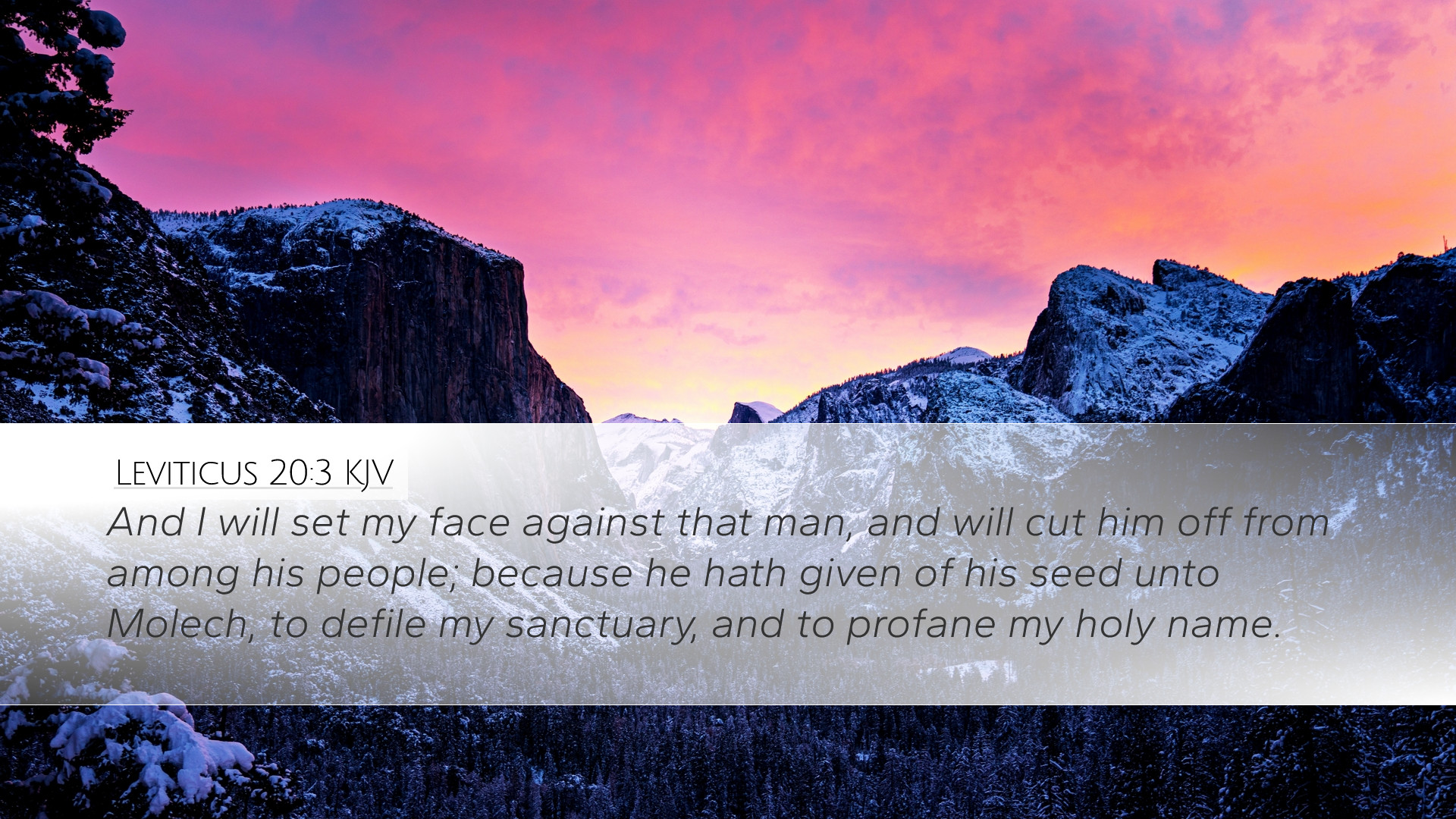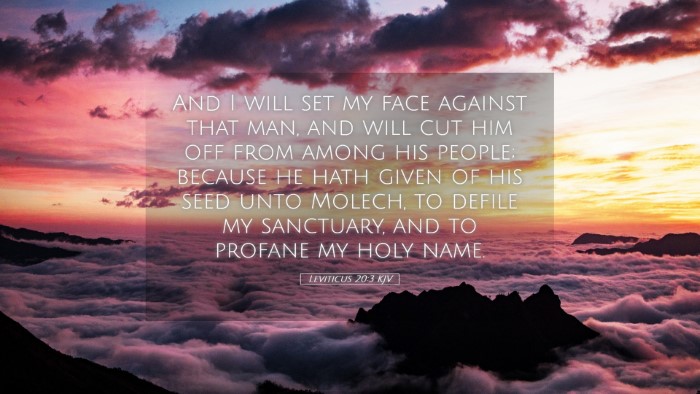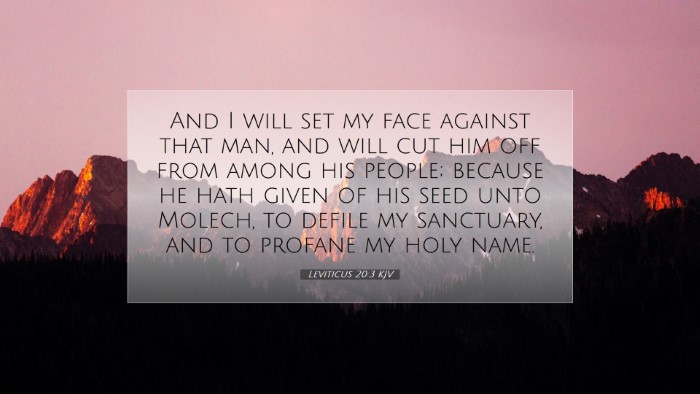Commentary on Leviticus 20:3
Leviticus 20:3 states:
"And I will set my face against that man, and will cut him off from among his people; because he hath given of his seed unto Molech, to defile my sanctuary, and to profane my holy name."
Understanding the Context
The Book of Leviticus is part of the Pentateuch, traditionally attributed to Moses, and primarily deals with the laws and regulations governing the conduct of the Israelites. It is essential to recognize that these commandments were given to a people newly liberated from slavery in Egypt, with the purpose of establishing a holy nation that reflects God's holiness.
Divine Retribution
This particular verse highlights the gravity of idolatry and the severe consequences it brings. As noted by Matthew Henry, God's fierce opposition against idol worship, such as the worship of Molech, demonstrates His holiness and the seriousness with which He regards His commandments. The act of offering children to Molech was particularly abhorrent, including elements of child sacrifice, which starkly contradicted the sanctity of life that God established.
Molech and Its Significance
Albert Barnes emphasizes the historical context of Molech worship, often associated with the Ammonite deity who required child sacrifices. The practice symbolized utter depravity as it involved the ultimate betrayal of parental responsibility and devotion to God. The Israelites were reminded that such actions would invoke God’s wrath and estrangement.
God’s Holiness and the Sanctity of His Name
Leviticus 20:3 is profound in its declaration that defiling God’s sanctuary and profaning His name are intrinsically tied to the community's moral and spiritual failures. Adam Clarke elaborates on the idea that God’s face being set against those who commit these abominations serves as a powerful warning. It calls members of the community to recognize the significance of maintaining purity in their worship and lifestyle to uphold God's holiness.
The Community and Its Responsibilities
This verse also underscores the communal aspect of holiness. God’s judgment is not only personal but also collective, affecting the entire congregation. Matthew Henry points out that this serves as a reminder to the people of Israel to collectively uphold righteousness; failing to do so could lead to communal judgment. This notion is particularly relevant for church leaders, as they are called to shepherd their congregations toward holiness.
Practical Implications for Believers
Leviticus 20:3 presents a sobering reminder to contemporary believers of the dangers of allowing idols, modern or ancient, to take precedence over God. As Albert Barnes implies, the passage invites introspection regarding what 'idols' might exist in a believer's life today—objects of affection or devotion that distract from true worship.
Conclusion: The Call to Spiritual Vigilance
In summary, Leviticus 20:3 serves as both a warning and a call to action. It challenges believers to understand the seriousness of defiling God's sanctuary and the names associated with it. The insights from public domain commentaries by Henry, Barnes, and Clarke lead to a rich understanding of how this ancient text remains relevant. It calls leaders, every member of the faith community, to a faithful walk that honors God's holiness and graciously preserves the sanctity of His name.


